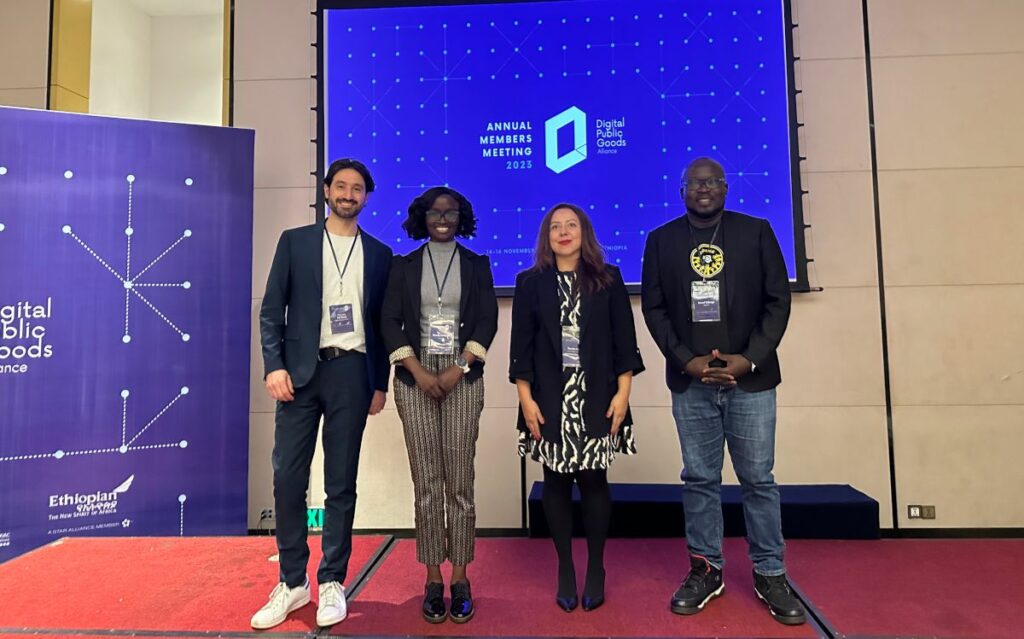
The Open Knowledge Foundation’s contribution to the Digital Public Goods Alliance summit in Addis Ababa was a dedicated workshop unpacking how to fight disinformation with open data infrastructure and standards in the electoral context as part of a broader global project exploring Digital Public Infrastructure for Electoral Processes.
The interactive workshop examined cases where the lack of such infrastructure led to social unrest, chaos and debilitated democracies during the electoral process. It focused on how a healthy information ecosystem fights disinformation and the role open data infrastructures and standards play, drawing learnings from past experiences in Latin America and Africa.
It highlighted how an open infrastructure can lead to a healthy information ecosystem, increasing trust in democratic institutions, access to real-time factual information, accountability for results, and civic engagement before, during, and after election day.
The workshop dynamic was to engage in conversation and detect misinformation in three stages of the electoral process: voters’ registration, campaigns, and election day. Three questions were asked to ignite the debate:
- What type of misinformation appears at each stage?
- What digital tool, open data set or official information would be helpful to counteract it?
- What digital public goods can help to fight it?
For each stage, there was a whiteboard with post-it notes so people could debate and write down their thoughts. This setup was key to bringing people together and fueling interaction among participants.
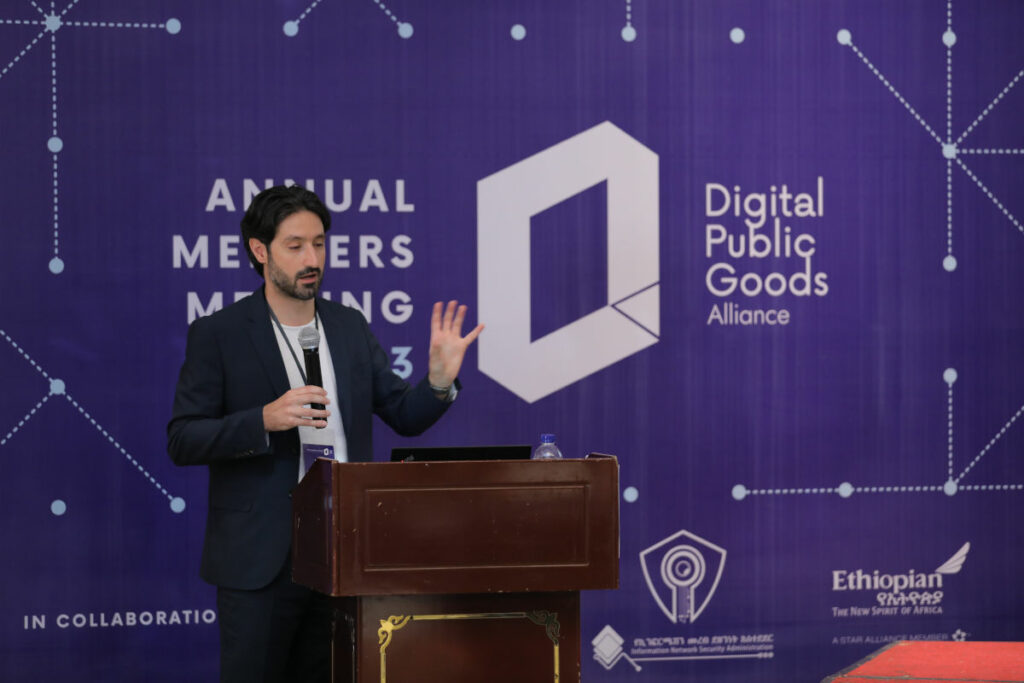
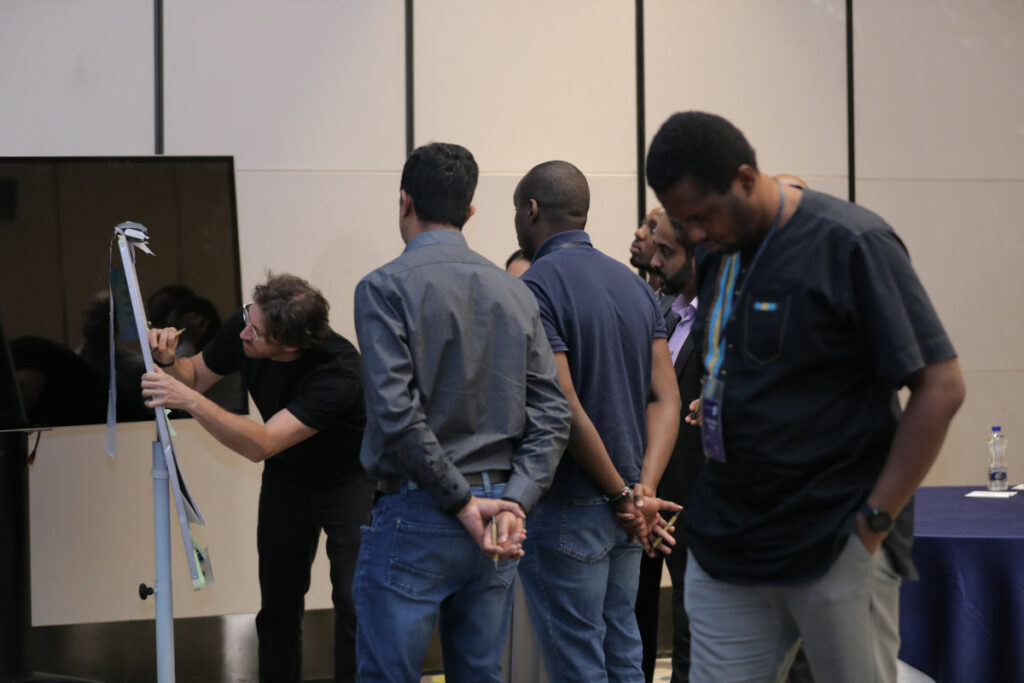
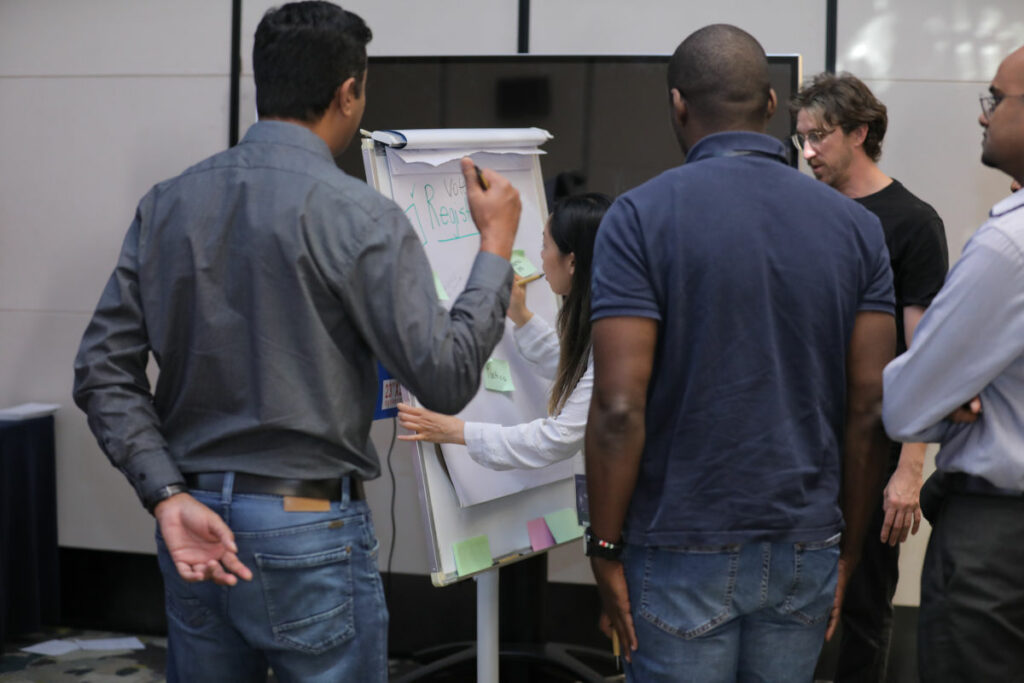
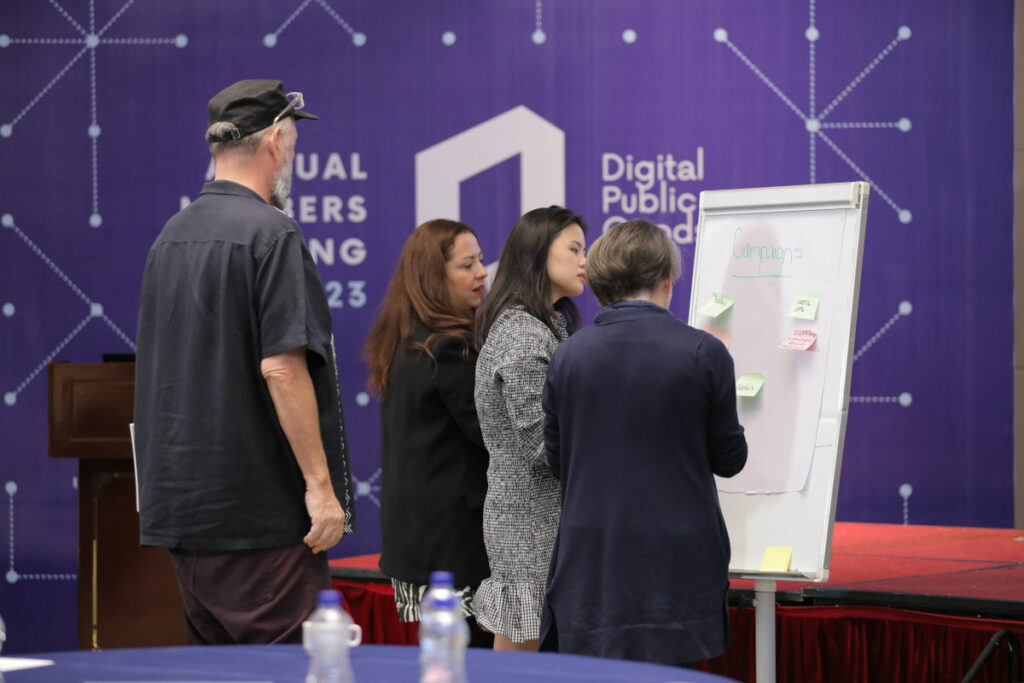
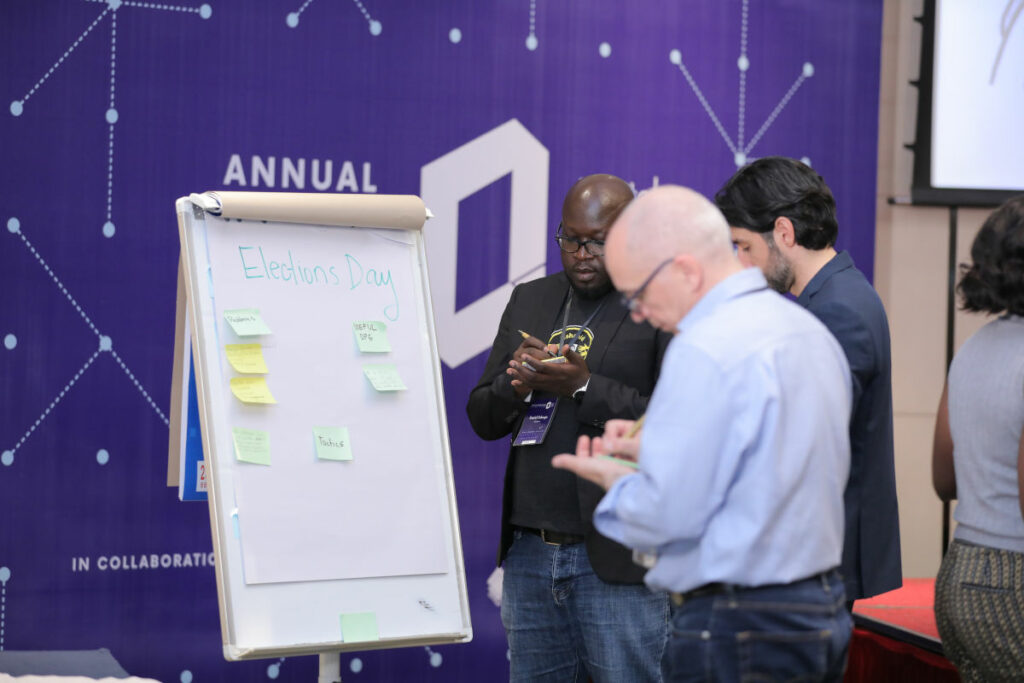
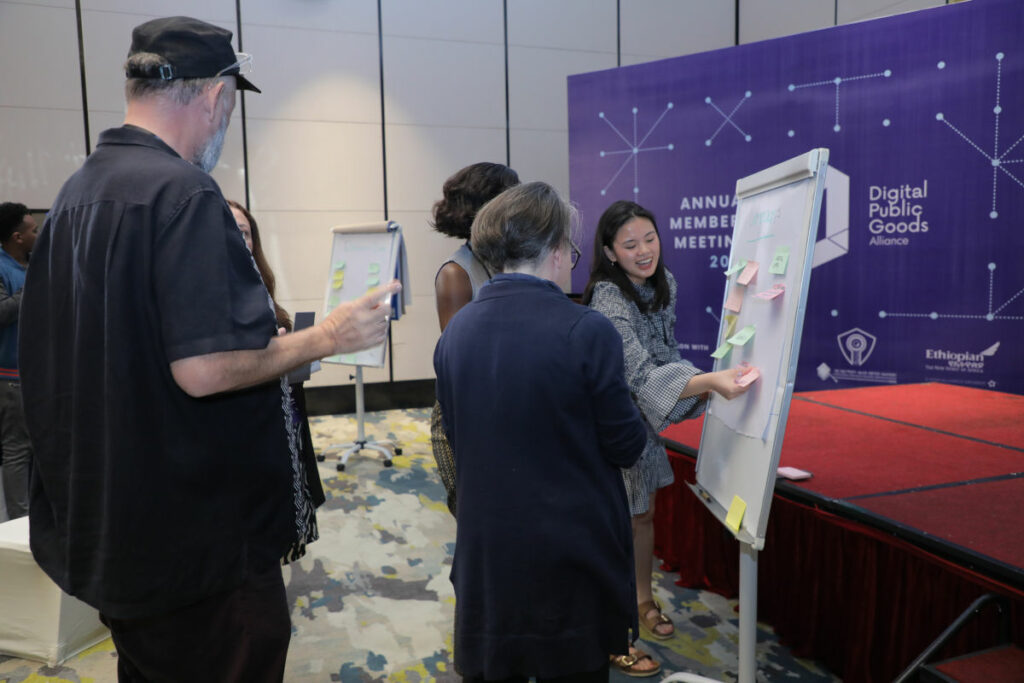
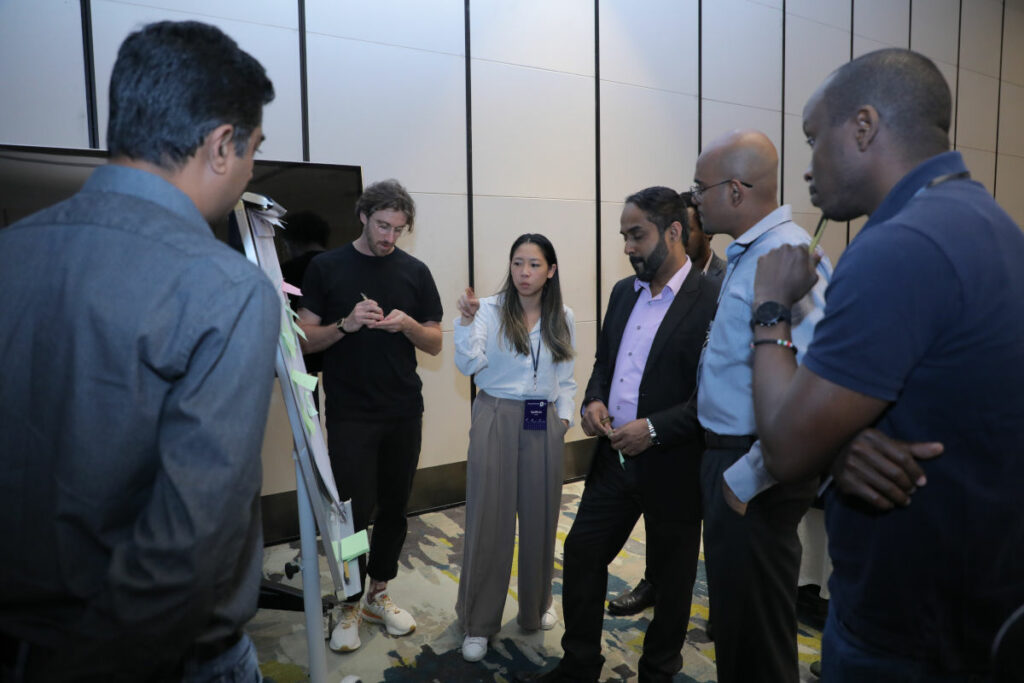
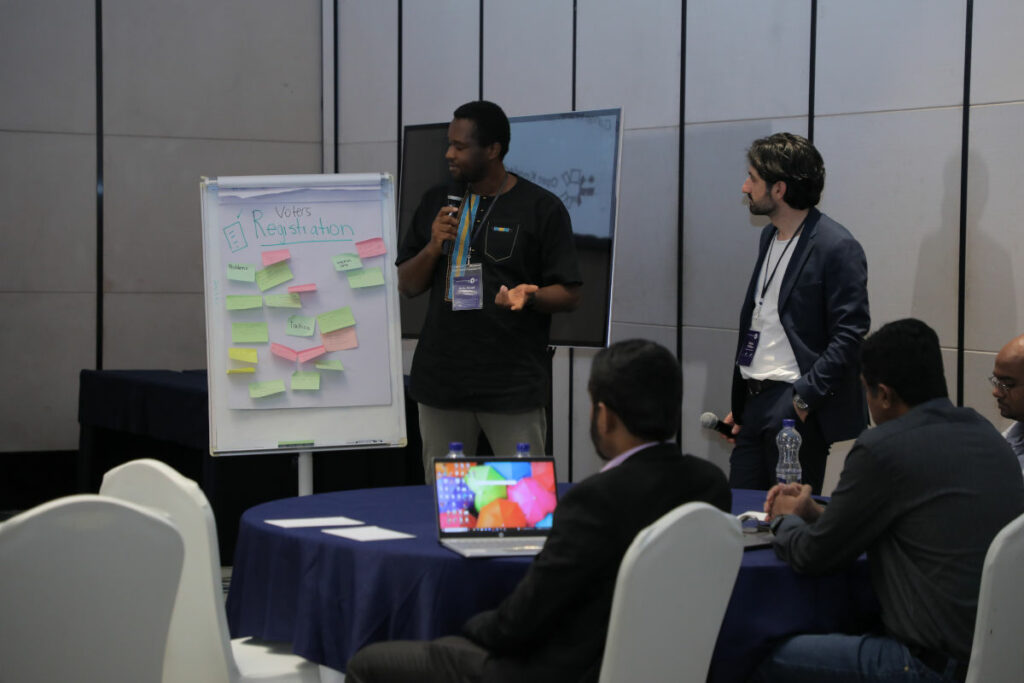
Results of the DPI Workshop
Given the various countries in the room, the conversation was rich and thorough, covering diverse problems from countries with different infrastructures for their electoral processes. This helped the audience understand what other countries are doing to solve misinformation issues and learn tactics to overcome their own challenges.
Here is a direct transcription of all the notes written on the boards:
Voters’ Registration
Problems
- Lack of interoperability between systems
- Not clear where to register or where to vote
- Wrong information on eligibility
- Wrong information on boundary delimitation (gerrymandering)
- Incorrect forms or procedures for registering
- Hard to update voters’ database
- Physical databases are difficult to query
- Delays in registration or not registering at all
- Redundant registration
Tactics and Suggestions
- Make it automatic to vote if you have an ID card
- Automatic registration
- Official/verified channel for information on how to register
- Clear and accessible voter registration guidelines
- Transparent voter registration database
- Move from hardcopy records to digital database
Useful DPGs
Campaigns
Problems
- Candidates with more money can spend more on disinformation
- Statistical fabrication of polls
- Misinformation about candidates (Philippines 2022)
- Deep fakes of audios and videos (Guatemala 2023)
- Cambridge Analytica used to spread misinformation (Kenya Elections 2023, US 2017, Philippines 2016/2022, Argentina 2015)
Tactics and Suggestions
Shut down Twitter and Facebook (already shut down in Uganda)
- Public disclosure of candidate finances and conflict of interest
- Campaign budget declaration
- Official channels for campaign information
- Documentation of candidates’ harassment incidents
- Campaign blackout before election day
- Fine people who post fake news
- Explanation of polls and methodology (how are they carried out)
Useful DPGs
- Simple webs + printable information + multiple languages
- Ushahidi
- Phoenix
Election Day
Problems
- Kenya had 2 general elections in 2017. Results were disputed
- Uganda 2021 had candidate harassment
- Ecuador 2023 had also violence and the assassination of a candidate
- Campaign not to vote
- TV Stations with live coverage repeat bogus claims from untrustable information
- People radicalised by social media
Tactics and Suggestions
- Curated channels of information to be established ahead of time. In Italy and the US are major TV stations, Government Resources, Public sites run by civil society
- Transparent results publishing and dissemination
- Disinformation datasets. Gather evidence of misinformation from previous elections
Useful DPGs
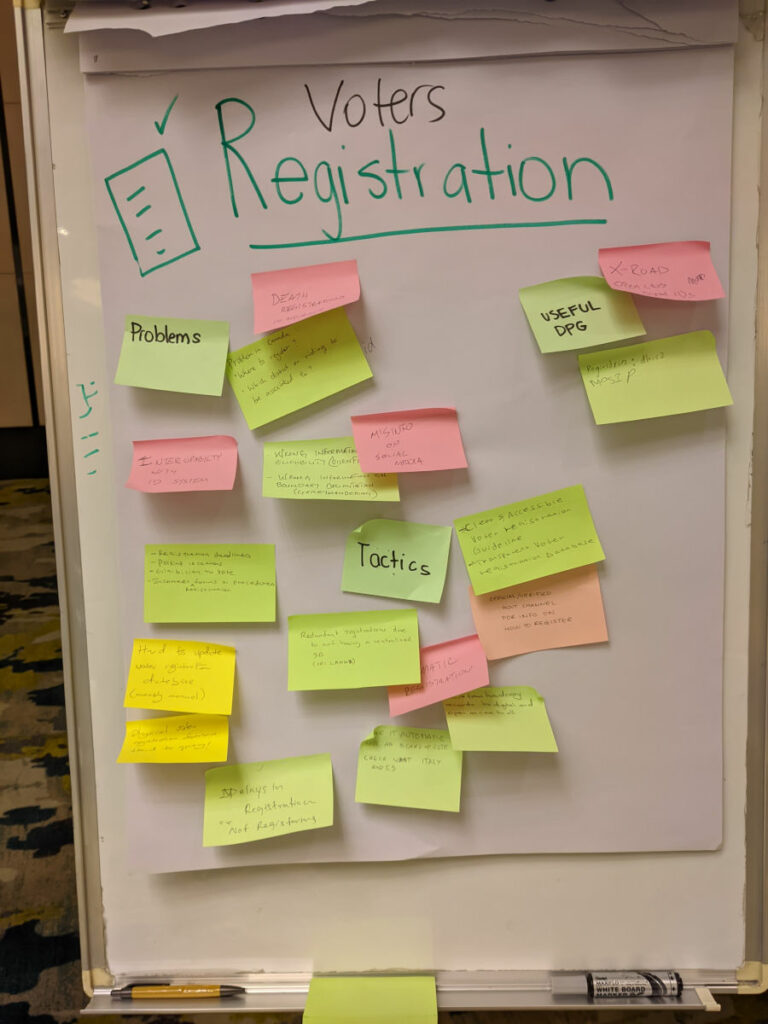
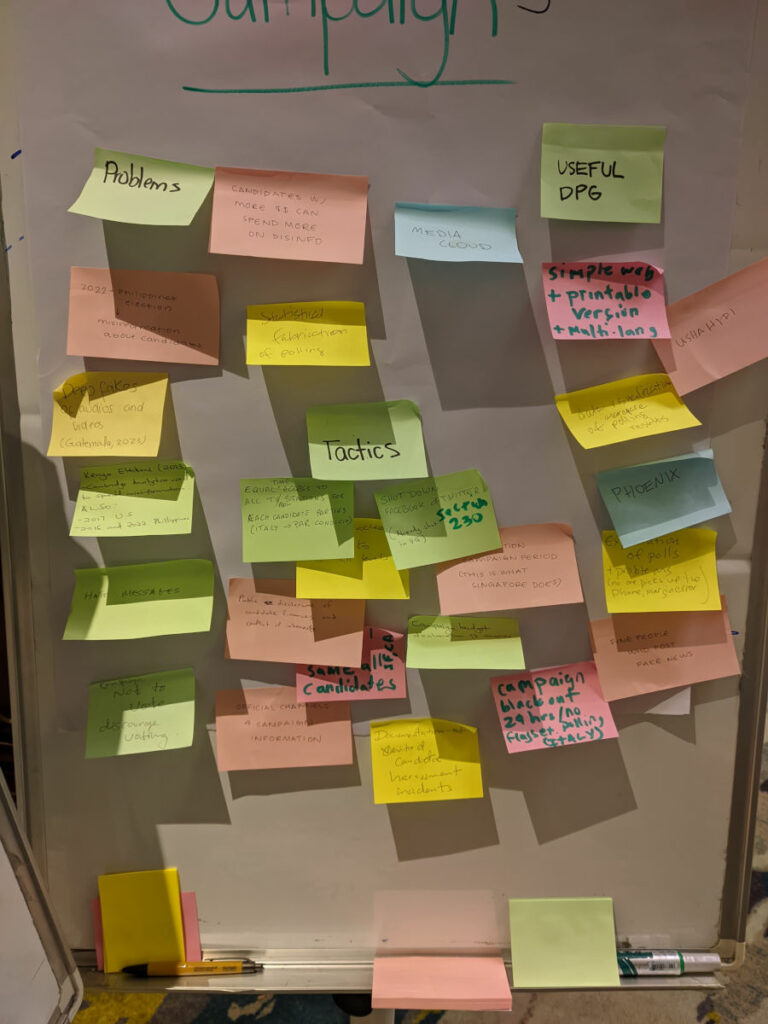
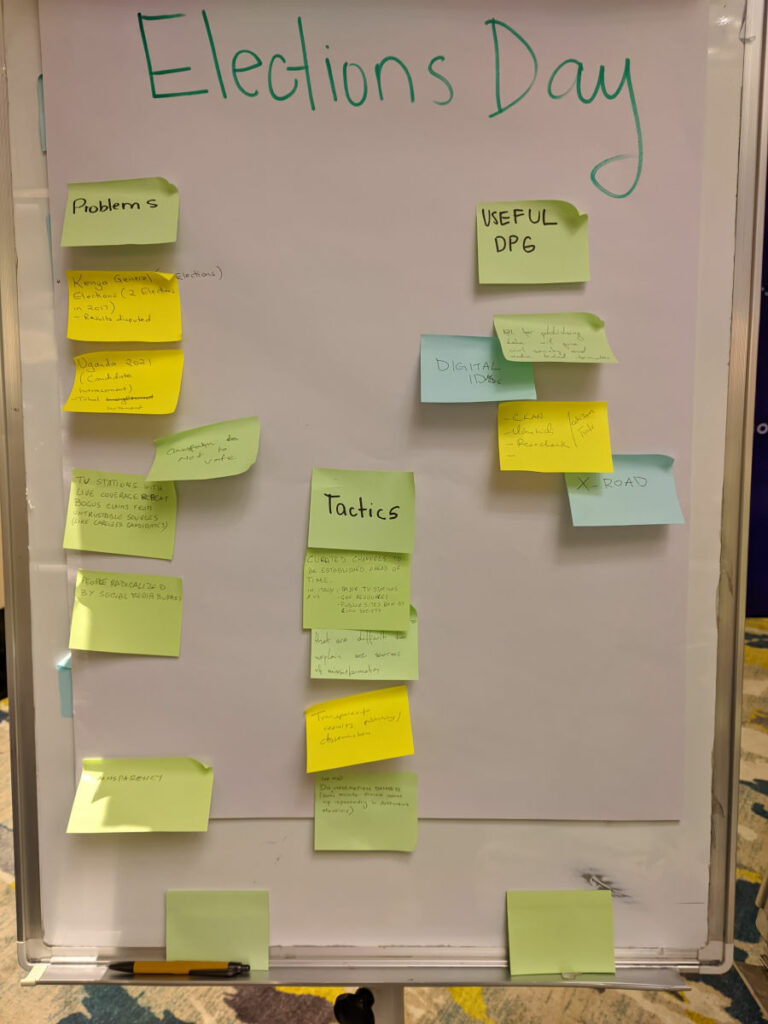
Some conclusions
First, it is critical that Digital Public Infrastructure can provide adaptable building blocks to build context-specific solutions. Given the diverse range of issues discussed across different countries, it becomes evident that a one-size-fits-all approach will not be effective. Digital Public Infrastructure for Electoral Processes cannot be developed as a general template on how to run elections. It should be a comprehensive toolkit with solutions for specific problems.
Second, Digital Public Goods (DPGs) hold immense potential in combating information pollution. Despite variations in electoral processes among different countries, many encounter similar challenges that can be effectively addressed using common Digital Public Infrastructure (DPI) building blocks. Consequently, establishing an ecosystem of open-source technologies that can be readily reused becomes crucial in addressing and mitigating the impacts of information pollution.
Lastly, we consider that making all the Electoral DPI open by design and by default will increase the trust and resilience of democracies.
As Irene Khan, UN Special Rapporteur on the promotion and protection of the right to freedom of opinion and expression, said: “Diverse and reliable information is an obvious antidote to disinformation and misinformation. States should fulfill their duty to ensure the right to information by increasing their own transparency and by proactively disclosing official data online.”
For that, the existence of open digital public infrastructure and shared practices is essential, and the workshop tried to shed light on such structural challenges and match them with the ambitious solutions the DPGA proposes.









2 thoughts on “How DPI can help fight Information Pollution during elections”
Comments are closed.